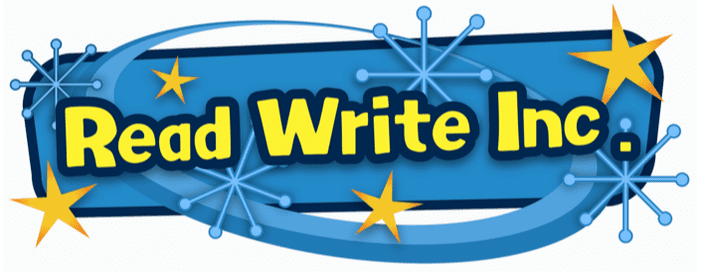
The Read, Write, Inc (RWI) “Get Writing” phonics programme is used at St George’s to teach reading and writing (including spelling).
Pupils begin the programme in Foundation Stage, and they will usually finish the programme some time in Year 2 (although some move through the programme at a quicker pace and complete it earlier, and some complete it later), at which point they begin RWI Comprehension with added support from the RWI Spelling programme and My Book Blog.
Pupils are assessed every half term by the Reading Leader and their progress is monitored carefully. Pupils move through the programme at an individual speed that is appropriate to their ability, not their age, and teaching is tailored to their needs; where pupils’ attainment is below expectation, we provide high-quality 1:1 provision.
Our current RWI consultant is Keely Slocock. She usually visits twice/year to monitor our teaching of all RWI elements (Phonics, Spelling, Grammar and My Book Blog). Keely is consistently very pleased with the progress children are making and the quality of teaching. Pupils are enthusiastic and active learning methods ensure all are engaged.
In school, we use RWI home reader books (book bag books). Their content matches the RWI book your child will read in school and we can guarantee they will have the skills necessary to read the book-they should not struggle to read. These books are not “too easy” for your child, so when they read the book with ease, please celebrate with them. We usually read books at least 3 times-once to “decode”, once to read more fluently and a third read for comprehension.
Should you have any questions about RWI Phonics, please speak to Mrs Brunning, RWI Reading Leader.
For more information about how Read, Write, Inc is taught, or for how you can support your child, please follow the hyperlinks below.
What is RWI? A short information video for parents
https://www.youtube.com/watch?v=MbWIujM1WGM
How to say the sounds
https://www.youtube.com/watch?v=TkXcabDUg7Q
Listening to your child read
Free e-books for home reading – Free Resources
Phonics Play – Interactive learning
Phonics Screening Check
During the summer term, children in year one are required to sit a phonics screening check. To find out more information about this, please see below.
Phonics Screening Check Information Video
Policy and Progression Documents
Talk for Reading
Policy
Progression Document
Reading Progression of Texts
Our Reading Curriculum
In KS2, we follow a bespoke curriculum to teach reading discretely. Reading lessons happen daily, following a structured approach to support every child in fluency and comprehension.
Monday – Vocabulary
Tuesday – Fluency
Wednesday – Summarising and book talk
Thursday – Understanding meaning in the text
Friday – Independent Comprehension
This structure allows our children to learn the important skills to become a reader in society and learn across the curriculum, in a progressive way throughout the week.
Teachers plan fiction, non-fiction and poetry texts throughout the year that support each cohort’s needs. They are a range of classic and modern, vocabulary rich texts, with diverse topics that support our community and cultural capital.
Children read to an adult every week so that adults can support and challenge each child with their fluency and comprehension regularly. Class teachers dedicate time every day to read a novel, while children can sit back and enjoy listening.
Accelerated Reader
Every child in KS2 has a book that they read in school and a book that they take home. We are unique in that we do not follow a set scheme of books to work through, for every child chooses their own reading books that they will enjoy and want to read – based on their own ability and reading level. Accelerated Reader is an excellent website to assesses the children’s levels. This website is also an exciting tool for our children to answer questions / quizzes about their books to demonstrate their comprehension and understanding.



